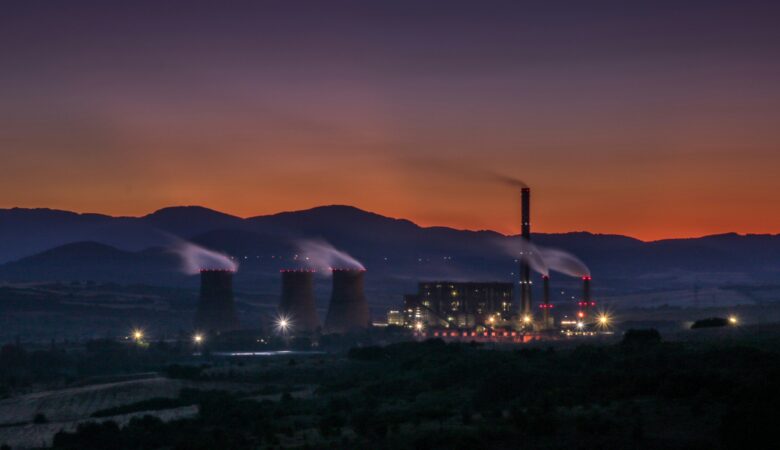Nigeria, Africa’s most populous nation and largest economy, is facing an energy crisis that poses significant challenges to its growth and development. Despite being rich in natural resources, Nigeria struggles with inadequate power supply, frequent outages, and limited access to electricity for millions of its citizens. As the demand for energy continues to rise, the need for innovative solutions to address this crisis becomes more urgent. Rhinobay Energy is developing and implementing strategies that not only tackle Nigeria’s energy challenges but also pave the way for a more sustainable and resilient energy future.
The Scope of Nigeria’s Energy Crisis
Nigeria’s energy crisis is characterized by several key issues. First and foremost is the significant gap between energy demand and supply. With a population exceeding 200 million, the country requires a robust and reliable energy infrastructure to meet the needs of its people and industries. However, the existing power generation capacity is insufficient, leading to frequent blackouts and reliance on expensive and polluting diesel generators.
Additionally, a large portion of the population, especially in rural areas, remains off-grid, with no access to electricity. This lack of energy access hinders economic development, limits educational opportunities, and exacerbates poverty. Furthermore, the energy infrastructure that does exist is often outdated, poorly maintained, and unable to efficiently deliver power across the nation.
Rhinobay Energy’s Approach to Solving the Crisis
Rhinobay Energy recognizes that addressing Nigeria’s energy crisis requires a multi-faceted approach that leverages innovation, investment, and sustainable practices. The company has developed several key strategies to contribute to solving the energy challenges facing Nigeria:
1. Expanding Renewable Energy Solutions
One of the most promising avenues for addressing Nigeria’s energy crisis is the expansion of renewable energy sources. Rhinobay Energy is heavily investing in renewable energy projects, particularly in solar and hydroelectric power. Given Nigeria’s abundant sunlight and significant hydro resources, these renewable energy sources offer a sustainable solution to the nation’s power needs.
Rhinobay Energy’s solar projects, for instance, range from small-scale installations that provide off-grid communities with reliable power to large-scale solar farms that feed into the national grid. These projects are designed to be scalable and adaptable to different environments, making them suitable for both urban and rural areas. By harnessing the power of the sun, Rhinobay Energy is not only addressing the energy gap but also reducing Nigeria’s reliance on fossil fuels.
2. Leveraging Natural Gas for Cleaner Energy
While the transition to renewable energy is crucial, natural gas remains a key component in Nigeria’s energy mix. Rhinobay Energy is committed to utilizing Nigeria’s abundant natural gas resources to provide cleaner, more efficient energy. The company is involved in the distribution of Liquefied Natural Gas (LNG) and Compressed Natural Gas (CNG), which serve as more environmentally friendly alternatives to diesel and petrol.
By promoting the use of natural gas, Rhinobay Energy is helping to reduce the environmental impact of energy production and consumption in Nigeria. Natural gas emits significantly fewer pollutants compared to other fossil fuels, making it a vital part of the transition to a more sustainable energy system.
3. Innovating in Energy Storage and Grid Management
One of the challenges with renewable energy sources like solar and wind is their intermittency—they do not produce power consistently throughout the day. To address this, Rhinobay Energy is investing in advanced energy storage solutions and smart grid technologies. Energy storage systems, such as batteries, allow for the storage of excess power generated during peak production times, which can then be used when demand is high or production is low.
Smart grid technology, on the other hand, improves the efficiency and reliability of the energy distribution network. It allows for better monitoring and management of electricity flow, reducing losses and ensuring that power is delivered where it is needed most. By integrating these technologies into Nigeria’s energy infrastructure, Rhinobay Energy is helping to create a more resilient and flexible energy system.
4. Enhancing Energy Access through Off-Grid Solutions
A significant portion of Nigeria’s population lives in rural areas where extending the national grid is not feasible due to high costs and difficult terrain. To address this, Rhinobay Energy is focused on deploying off-grid solutions that can provide reliable power to these underserved communities.
These off-grid solutions include solar home systems, mini-grids, and portable solar-powered devices. By providing affordable and scalable energy solutions, Rhinobay Energy is not only improving the quality of life for millions of Nigerians but also enabling economic activities that were previously hindered by the lack of electricity.
5. Fostering Public-Private Partnerships
Rhinobay Energy understands that solving Nigeria’s energy crisis requires collaboration between the public and private sectors. The company actively engages with government agencies, international organizations, and financial institutions to create an enabling environment for energy development. Through public-private partnerships, Rhinobay Energy is able to leverage additional resources, share risks, and implement large-scale energy projects that might otherwise be unfeasible.
The Impact of Rhinobay Energy’s Efforts
The innovative solutions being implemented by Rhinobay Energy are already making a significant impact on Nigeria’s energy landscape. By expanding access to clean and reliable energy, the company is contributing to economic growth, job creation, and improved living standards across the country. Moreover, by reducing the reliance on fossil fuels and promoting the use of renewable energy, Rhinobay Energy is playing a critical role in mitigating the environmental impact of energy production in Nigeria.
The company’s commitment to sustainability, innovation, and collaboration sets a strong example for other players in the energy sector. Rhinobay Energy’s holistic approach to addressing the energy crisis—combining renewable energy expansion, natural gas utilization, technological innovation, and strategic partnerships—demonstrates that a sustainable energy future for Nigeria is not only possible but within reach.
The Way Forward
Nigeria’s energy crisis is full of significant challenges, but this is also an opportunity to rethink and reshape the nation’s energy future. With companies like Rhinobay Energy leading the way, there is hope for a more sustainable, reliable, and accessible energy system that can power Nigeria’s growth and development for years to come.
As Nigeria continues to navigate its energy transition, Rhinobay Energy’s innovative solutions and forward-thinking strategies will be crucial in overcoming the current challenges and unlocking the full potential of the country’s energy sector. By prioritizing renewable energy, embracing technological advancements, and fostering collaboration, Rhinobay Energy is helping to chart a new path forward—one that ensures a brighter, more sustainable future for all Nigerians.














Leave a Reply